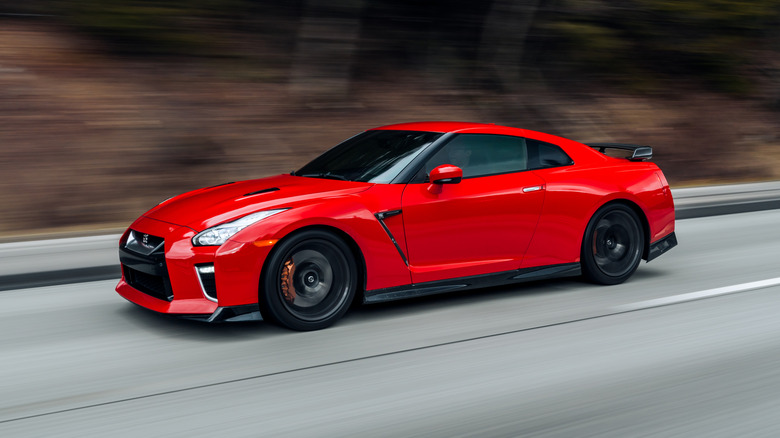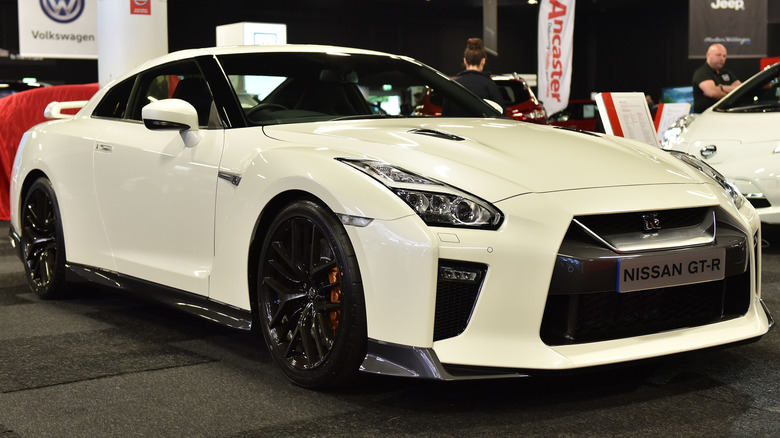A New Nissan GT-R Hybrid Is Coming, But It Might Not Be Fast Enough
In February this year, Nissan made it clear that an iconic GT-R was riding into the sunset, ending a stellar run that began all the way back in 2007 for the R-35 generation. It appears that the company is now banking on its revival to pass through one of the most tumultuous times in its history. At the buzzy New York Auto Show, Nissan surprisingly confirmed plans to revive the classic with an unexpected hybrid approach.
Ponz Pandikuthira, Regional Senior Vice President and Chief Planning Officer at Nissan Americas, told The Drive that a next-gen GT-R is in the making. It will be hybrid, but the company hasn't exactly decided on the final powertrain architecture as the team is torn between a hybrid and a plug-in hybrid format. "We are going to have a certain level of electrification there," the Nissan executive was quoted as saying.
Pandikuthira confirmed that the R-36 generation GT-R will be turbocharged and expressed enthusiasm about the solid-state batteries to deliver the combined benefit of high electrical range and raw firepower. Just how much exactly? Well, think of a V6 twin-turbo churning out over 600 hp on a good day.
It all sounds quite exciting for GT-R enthusiasts, but the wait could be a long one, and rather precarious. When asked about a tentative release, the Nissan executive dropped a "next three to five years" timeline for the hybrid's arrival. In the world of automobiles, that's a tricky spell to survive given the current market situation.
An worryingly long wait for revival
Nissan drummed up hype about its next GT-R project last year, when a senior executive mentioned that it would borrow "Godzilla" elements and that uncompromised performance remains a top priority for the project. But in the months that have elapsed since, the company's financial trajectory has made a sharp turn, and not in the right direction.
The company witnessed a dramatic 90% decline in profits, triggering a 20% cut in its worldwide manufacturing efforts and thousands of job cuts. The lack of portfolio innovation and the unpredictable shift entailing electrification (fully electric and hybrid) put the company in a tough spot. The company got a double whammy in major markets, as Chinese upstarts left no breathing room for EVs, while the US market received no exciting entrants from Nissan despite a wider portfolio. The company also had to delay its electric sedans, eyeing the US market. The biggest setback, however, was the collapse of a merger deal with Honda.
With the Japanese brand getting out of the picture, Nissan found itself missing out on the supply chain and technology sharing support from a much bigger automobile player. Without a technology stack that can beat labels like BYD and Tesla in its most important markets, Nissan was left bleeding with an outdated line-up, triggering a price cut cycle to clear inventory. A hybrid GT-R could inject some much-needed energy and market interest, but a wait time spanning up to half a decade sounds a tad too long as the company faces a dire business crisis.

